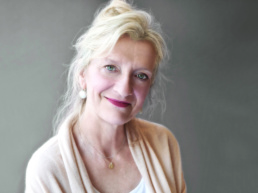Our guest of this week’s Atlantic Talks is Martim Sousa Tavares, conductor and founder of Orquestra Sem Frontreias. Graduated in Musical Sciences and Orchestra Conducting in Lisbon, Milan, and Chicago, Martim Sousa Tavares became one of the leading promoters of classical music in Portugal, also in unlikely concerts in the nightclub LuxFrágil.
Although it is difficult to define what is “American music”, Martim Sousa Tavares gives a complete answer to this question from Filipe Santos Costa: “is the music you make of America.” Music is a reflection of what it is like to live in a society with its cultural traditions, which in the case of the US, due to its diversity and almost continental proportion, can reflect several things.
“Armstrong has a vision of America, and an experience of what it’s like to be American, that Bernstein or Gershwin didn’t have, and vice versa. That is, Bernstein can tell us what it’s like to be a Jew descended from east coast immigrants, for example. Armstrong tells a completely different story. But both is music that is made of America, which is born from this experience.” – Martim Sousa Tavares
Like so many Europeans, Martim Sousa Tavares did part of his musical career in the USA in his case in Chicago, at the Northwestern University, but he did not stay there, and in this week’s episode, he recalls that once upon a time it was Europe the great colonizer of the so-called “American” music.
“It should be remembered that US history is a colony history, and therefore it is normal that it has been culturally colonized by Europe for centuries. And it is not by the English leaving that things stopped being that way.” – Martim Sousa Tavares
Until the beginning of the 20th century, the great source of legitimacy and cultural satisfaction in the United States was, according to Martim Sousa Tavares, from “bringing the best of Europe, and then importing their models and doing a kind of artistic recycling.” The advent of jazz changed all of this, the first musical language recognized as American, where, for the first time, the opposite happens, it is the US that attracts the attention of composers from all over the world.
“Berlin in the 1920s is crazy about jazz, the city is crazy about it, and Kurt Weill and Krenek are introducing German-style jazz. In Paris the same thing, Ravel begins to write music in a complete jazz style. (…) And it is very interesting to see this for example in Ravel, to hear it in a Hindemith, how this American language enters their journey, which they absorb.” – Martim Sousa Tavares
With regards to the boundaries imposed between musical genres, such as classical music and pop, Martim Sousa Tavares does not believe in them, and states that his interest is in the points of contact between the two forms of musical expression.
“I can’t force people who like classical music to listen to pop music as well. But what I can do is try to make classical music dialogue with pop music. And if I write a musical piece I can perfectly wink or play with anything pop music. Classical music loses nothing with it, quite the contrary, it only reveals itself as open and ecumenical, and in relation to the world around it, a living art. Pop music also doesn’t lose anything from it. And I don’t think the public does either. So, there is truly no reason to want things to be in closed chambers.” – Martim Sousa Tavares
Despite these barriers, one of Martim Sousa Tavares’ goals is to bring classical music closer to younger audiences, to different audiences, and to think outside the box. One of these experiences was with his musical programming at the LuxFrágil nightclub.
“That was how this music style was lived, in great proximity. Nowadays, we put it in an antiseptic chamber, on top of a stage, all people in absolute and fatal silence. And please note, silence is good for music, of course, I am not saying it’s not, but if we can stay quiet and have a closer attitude, the audience doesn’t have to be sitting at two and a half meters away and at a lower level, but being able to get closer, to circulate and to have a glass in their hand, there is absolutely no problem. (…) And, in sum, what was proposed [at LuxFrágil] was that each person would do the experience they wanted around that, but of course, with freedom.” – Martim Sousa Tavares
Don’t miss this episode, already available on the platforms where you normally listen to your podcasts. You can also find this episode in the links below.
Related Posts
March 5, 2025
Flechada 2025 – Five Artists Selected to hold their First Solo Exhibition with FLAD Support
The program will support five young…
February 17, 2025
Launch of the FLAD Rui Machete Award: 200 thousand euros to distinguish paths of excellence in the Portugal-USA relationship
The Award, worth 200 thousand euros,…
January 29, 2025
Elizabeth Strout, Pulitzer Prize Winner for ‘Olive Kitteridge’ – Feb. 13, at FLAD
Elizabeth Strout, winner of a Pulitzer…


